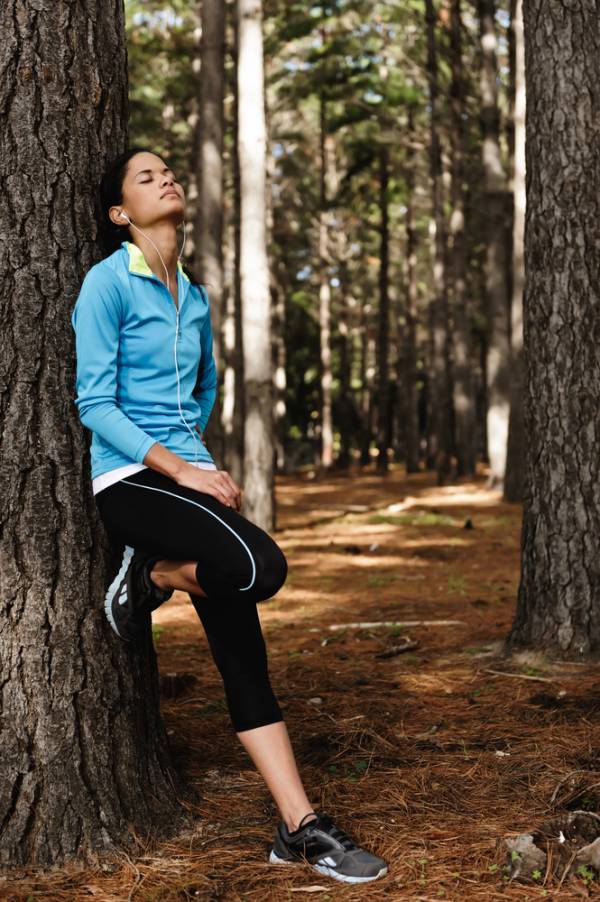Whenever I begin to work with a new athlete, I usually strike up a conversation that involves the individual’s athletic history. I like to find out if he or she has been a serious competitor, a lifestyler if you will, in another sport, or merely a high school athlete or weekend warrior. The primary reason is so that I know how much effort I will have to put into teaching this person how to be an athlete, a completely different issue from coaching a sport.
Most people who have never been a lifestyle athlete or lived around lifestyle athletes have a limited view of what is involved outside of the gym. These uninitiated have probably developed their perspective on athletes from watching those “up close and personal” pieces that television sport channels are so fond of producing and televising. (And for some reason they all like to show athletes running alongside railroad tracks.) The emphasis is pretty much always to get people to believe that great athletes are just normal folks who work hard under adverse circumstances. The only message that usually gets through is that you have to work hard.
Now having coached a fair number of very good athletes in a wide variety of sports in addition to my specialty of weightlifting, I can tell you that in many aspects of their preparation great athletes do work very hard and with great focus. All of them, however, also learned to listen to their bodies and learned how to rest effectively. Hard training without adequate recovery through rest will not hasten the training process and will, in fact, impede it as it places the body in jeopardy of injury and illness through a compromised immune system.
Most of my coaching difficulties of late have come from working with people who are latecomers to sport. They may have been a high school athlete for a semester or so, but more than likely spent their time being successful at careers or other activities – all accomplished through hard work. I would even go so far as to say that some of these people probably suffer from ADD or ADHD, and simply cannot refrain from doing activities they think will advance them along. They believe deeply that they can solve any problem by “hard work” or even “overwork.” Just as it’s difficult to get lazy individuals to work more diligently, it is just as difficult to get the hard drivers to back off.
Most of the talented athletes I’ve worked with were used to achieving success at the early levels without working very hard due to their talent. Consequently they could casually relax, and then work as hard as is necessary when the situation dictated some effort. When they came to the realization that they were passionate about their sport and that the only pathway to the ultimate success was through hard and diligent work, they developed the most efficient way to approach the problem. They did not forget how to relax and rest at the appropriate times. These athletes don’t come from the mindset that only hard work conquers all.
 My advice to the “hard chargers” who have succeeded in areas outside of sports solely through hard work is to start listening to your body and not your compulsions. At some point you will have to put in some hard work to be sensitive to the signals coming from your body. If you feel tired, you are probably tired and need to rest. So rest! If you are hungry, then eat. If you have trained an optimal amount for your stage of development on a given day, then doing more will not make you better and could in fact retard your progress. If this behavior is repeated regularly, you run the risk of completely offsetting any benefits gained from proper training.
My advice to the “hard chargers” who have succeeded in areas outside of sports solely through hard work is to start listening to your body and not your compulsions. At some point you will have to put in some hard work to be sensitive to the signals coming from your body. If you feel tired, you are probably tired and need to rest. So rest! If you are hungry, then eat. If you have trained an optimal amount for your stage of development on a given day, then doing more will not make you better and could in fact retard your progress. If this behavior is repeated regularly, you run the risk of completely offsetting any benefits gained from proper training.
If I were to identify one of the key differences between sports champions and athletes enjoying limited success, it is the degree to which top athletes are sensitive to the needs of their bodies. Some people have this primeval connection well in place by the time they reach adolescence, but the rest of us can develop the connection through proper attention paid to the training experience.
So if you are an athlete anxious to find the answer to the question that we are all seeking – What’s the best I can do?” – you need to develop that mind-body connection that lets you know when you are in need of rest. It may strike many as strange, but so many people are living in a body with which they only have minimal communication.
Of course you need to train hard, but you also need to rest hard (or at least effectively), and continued athletic progress is dependent upon combining the two factors in the proper dosages. Try to develop instincts about your body, if you haven’t already done so.
Photos courtesy of Shutterstock.






